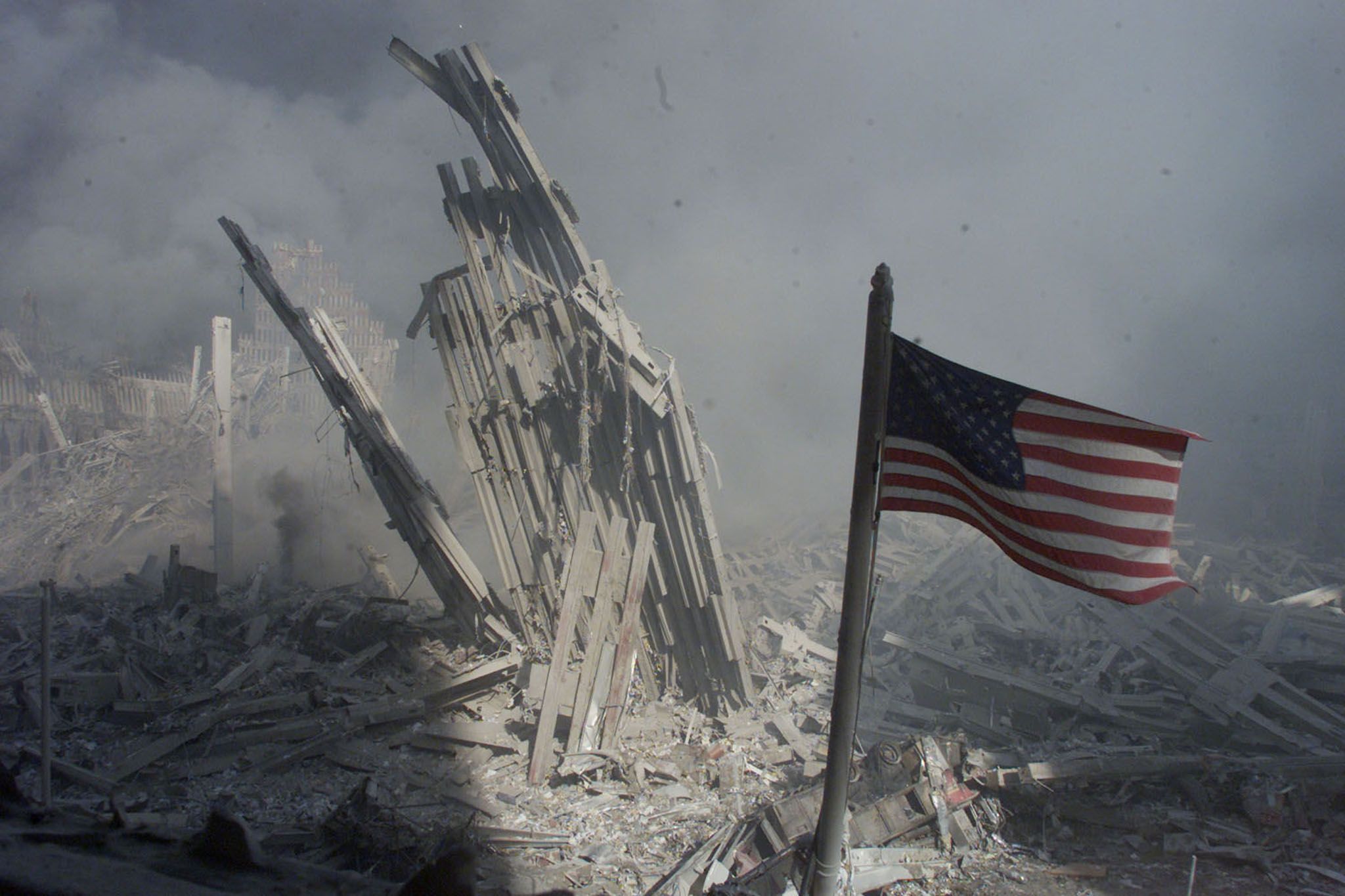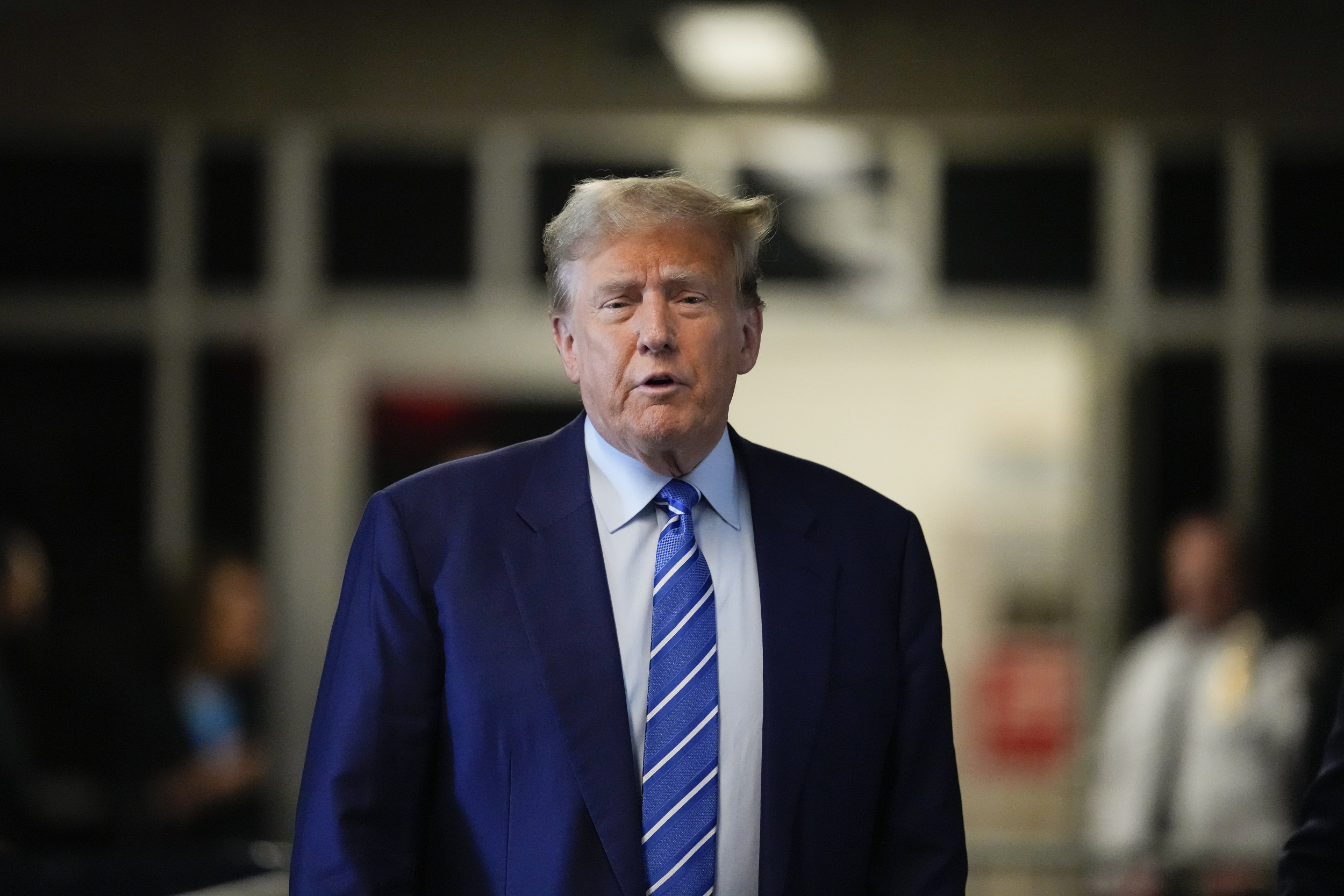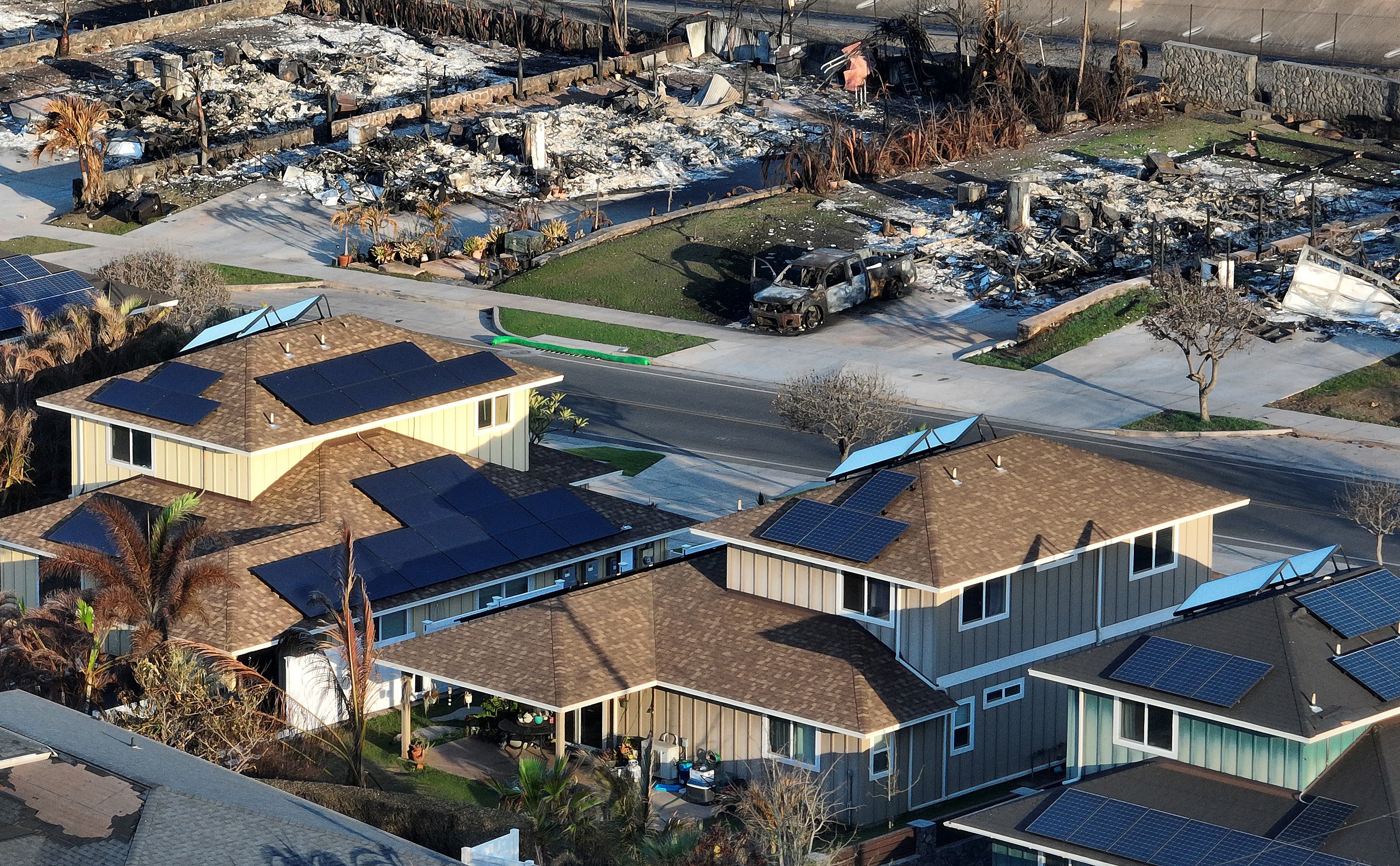
The day after 9/11, I was visiting Cairo, the birthplace of my Egyptian mother, and preparing to return to England, the birthplace of my English father, to begin my doctoral studies. Though none of us had any ties to the United States, we were all in a state of shock, finding the idea of terrorists hijacking passenger airliners and crashing them into civilian targets horrendous. The shock was then accompanied by something particularly personal—concern, by an Egyptian relative, for myself.
My relative was pleading that I shave off the short goatee beard I had, before I travel back to the UK, utterly convinced that if I failed to do so, I'd be harassed or held up upon arrival in the U.K. I was the British son of an Englishman—but my relative was convinced that as I wasn't a blonde-haired and blue-eyed Caucasian, I'd be considered suspect at the U.K. border. The Egyptian side of my family remembered well the racism they encountered while living in England in the 1980s, and thought a clean shaven face might be considered less controversial to a customs official.
Of course, it doesn't actually make all that much of a difference—not then, and not today. Facial hair or no facial hair, there are regular reports of Arabs and Muslims being stopped at airports, under the so-called "random" protocols (which no-one believes is random, including those doing the stopping). They might have beards, they might not; they might wear hijabs, they might not; and God help them, it seems, if they speak Arabic on certain American airlines.
That kind of racial and religious profiling isn't a myth or an exaggeration—it's fully established. But it is a kind of prejudice that is in danger of being completely normalized. One only needs to look at Donald Trump's presidential campaign to see race baiting and bigotry being utterly mainstreamed in political discourse. But across Europe, with Pegida in Germany, or UKIP in the U.K., it's not exactly smooth sailing.
A few days after I arrived back in England post 9/11, I had my first racist encounter. An annoyed motorist passed me by as I was driving slowly in the opposite direction on a hill that he was coming down, and said in rather slurred speech, "Why don't you learn how to drive? Go back to your country and learn how to drive and speak English."
It was, frankly, stunning. I hadn't said a single word to the driver, so his assumptions about my command of English were rather peculiar. But it was just shocking how easily the diatribe came to him. I was with several friends at the time, while the driver came across as stoned, so we opted to ignore him and leave him be. But I couldn't leave the feeling of sadness behind. That stuck with me.
As I ponder in 2016, 15 years after those days, I consider the exponential increase in racism and bigotry, which we saw so evidently in the lead up to and following the vote around Brexit. But while we focus on the more blatant manifestations of that, we don't always notice the subtler, yet still insidious, examples of our prejudices and presumptions. They're sinister, because they're often not noticed as, indeed, another bias.
Baroness Sayeeda Warsi, the former chair of the U.K.'s Conservative Party, called this the "dinner table test," where anti-Muslim sentiment was considered part of normal conversation in "respectable" society. A few weeks after 9/11, I was about to begin my doctoral degree and a staff position at a university in England. It was weeks after the attacks, and yet, one of the first questions I was asked by one of my new colleagues was, "How do you feel about 9/11?" And before I could even offer a reply, she volunteered: "Well, I think it was terrible." The implicit assumption was that my feeling about 9/11 would have been different than her's.
The irony is that 9/11 affected me far more negatively than it did her. It affected me in the U.K. far more than it did her. And it affected me in the Arab world far more than it would ever affect her in the U.K.
But while it was perhaps implicit in her question, that colleague didn't ask me to condemn terrorism. But in the past 15 years, I've lost count how many times I've seen articles and op-eds demanding that Arabs and Muslims, whether in the West or out of it, condemn terrorism en masse. It's an incredible demand. George Bush openly considered himself guided by God as he invaded Iraq, but Christians worldwide aren't expected to atone for his disastrous decisions. Benjamin Netanyahu just described anyone who opposed illegal Israeli settlements on occupied Palestinian land as someone who supports "ethnic cleansing;" but Jews worldwide aren't expected to apologize for this leader of the self-proclaimed Jewish state. Nor are Buddhists globally required to take responsibility for the insufferable position of the Rohingya in Burma at the hands of Buddhists. And quite rightly too. But it is undeniable that when it comes to Muslims, the expectation is very different indeed.
When extremist Islamists attack civilians in places like France, Brussels or elsewhere in the West, Muslim Westerners feel pain twice. The first is the same pain their compatriots feel—the pain of seeing their country attacked by criminals who abuse their religion to justify horrific acts. But the second pain is theirs to bear alone—the pain of their being associated with the attackers by their compatriots, simply because they also claim the religion of Islam as their own.
Fifteen years after 9/11, that is the West in which we live—a world where many of our own citizens have to deal with presumptive assumptions; where bigotry and prejudice is something they now take for granted; where blame is apportioned not due to actions done, but names shared.
But normalizing that kind of intolerance, allowing it be mainstreamed across the political spectrum, it doesn't come without a cost for all of us. And that chauvinistic narrow-mindedness was part of the point. Fifteen years on, the likes of al-Qaeda look at the way Muslims are treated in popular discourse, and smile. It validates part of their nefarious worldview. We have mainstreamed the "othering" of Muslims in our midst in the West. It's now, wholly, respectable.
I'm not really sure what "winning" against al-Qaeda and the likes of it, such as ISIS, quite means, since it's been said that we "won" many times over in the past 15 years. But it is clear that right here at home, in Britain, in Europe, in the West, we're not winning in one key respect. And that is the recognition of the indigenous nature—the indigenization—of Muslims in these lands. They're integral parts of our societies, our communities, and our countries. But 15 years later, we treat them far too often as though they were so alien, so foreign to us.
Except, they're not "they." They're "us." And recognizing that—indeed, celebrating it—is one of the key ways we really do succeed in the fight against extremism.
Dr H.A. Hellyer of the Royal United Services Institute in London and the Atlantic Council in Washington DC, is the author of "Muslims of Europe: the 'Other' Europeans" and "A Revolution Undone: Egypt's Road Beyond Revolt". He tweets at @hahellyer.
Uncommon Knowledge
Newsweek is committed to challenging conventional wisdom and finding connections in the search for common ground.
Newsweek is committed to challenging conventional wisdom and finding connections in the search for common ground.
About the writer
To read how Newsweek uses AI as a newsroom tool, Click here.








